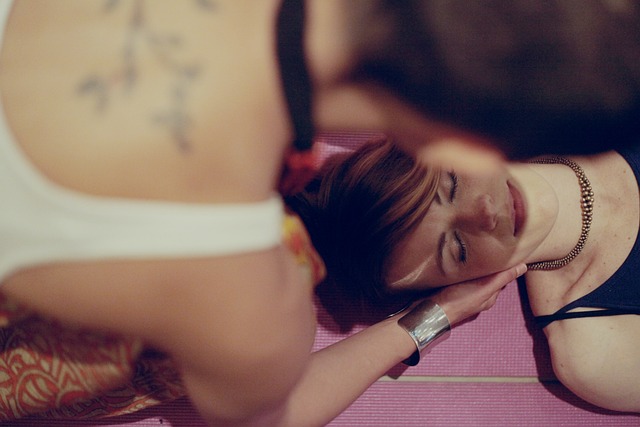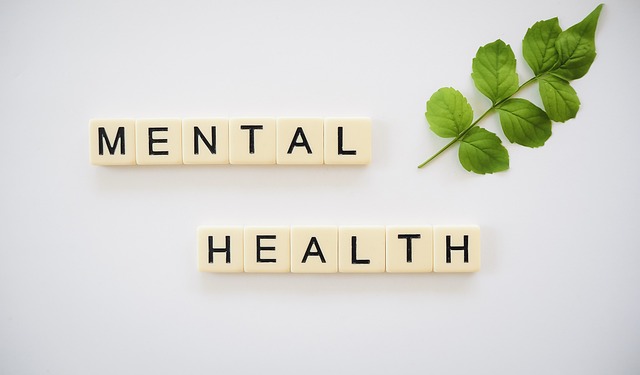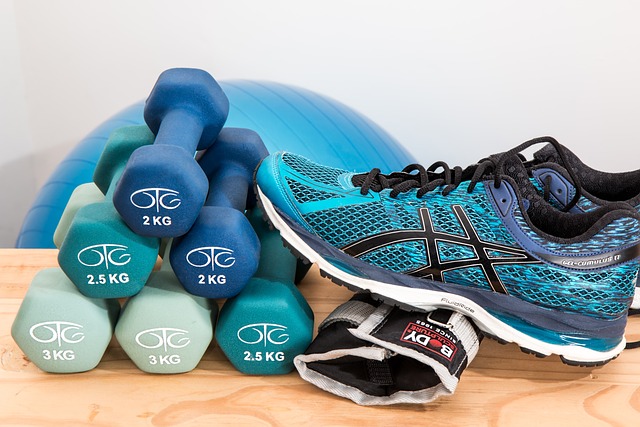Identifying personal fitness goals is a transformative first step towards enhancing overall well-being. It involves setting specific, measurable, achievable, relevant, and time-bound (SMART) goals, reflecting on motivations like stress management or physical transformations through yoga and meditation. Integrating mindfulness techniques such as deep breathing, gratitude journaling, and self-care routines fosters resilience, mental clarity, and emotional balance. Adopting healthy eating habits alongside regular physical activity, yoga exercises, and stress management strategies ensures a holistic approach to wellness, boosting energy levels, cognitive function, and sustained vitality.
Achieving your fitness goals starts with a clear vision and tailored strategies. This article guides you through a holistic approach to wellness, focusing on personalizing your fitness journey. From setting SMART goals and adopting healthy eating habits to incorporating yoga, meditation, and stress management techniques, discover the power of mindfulness in every aspect of your health. Uncover effective wellness practices to enhance performance, improve mental clarity, and cultivate a joyful, grateful mindset.
- Identifying Your Personal Fitness Goals
- – Understanding your motivations and aspirations
- – Setting SMART fitness goals
- Wellness Practices for Holistic Health
Identifying Your Personal Fitness Goals

Identifying your personal fitness goals is a crucial step in embarking on your wellness journey. It’s not just about achieving a certain physique but also enhancing your overall well-being, encompassing both mental and physical health. Start by reflecting on what you truly desire to accomplish. Do you seek improved strength and flexibility through yoga exercises? Or maybe managing stress and cultivating inner peace through meditation practices is your priority. Perhaps it’s adopting healthier eating habits or establishing a consistent routine of regular physical activity.
Incorporating mindfulness techniques, such as deep breathing exercises, gratitude journaling, and self-care routines, can significantly contribute to achieving your goals. These wellness practices not only support your fitness objectives but also help in maintaining balance and resilience throughout the process. By aligning your efforts with these personal goals, you’ll be more motivated, focused, and equipped to navigate any challenges that come your way.
– Understanding your motivations and aspirations

Understanding your motivations and aspirations is a crucial first step in crafting a personalized fitness journey. Taking time to reflect on what drives you—be it improving overall health, boosting energy levels, managing stress, or achieving specific physical goals—is key to staying motivated throughout your wellness practices. Incorporating mindfulness techniques, such as meditation practices and deep breathing exercises, alongside yoga exercises can help align your mind and body, making regular physical activity a more enjoyable and sustainable part of your routine.
Additionally, cultivating healthy eating habits and self-care routines, including gratitude journaling, can enhance overall well-being and support your fitness efforts. Stress management strategies, like those found in mindfulness and meditation, play a significant role in maintaining balance, ensuring you approach physical activity with a clear mind and a body ready to perform at its best. By combining these various wellness practices, you create a holistic approach that addresses not just the physical aspects of fitness but also the mental and emotional components, leading to lasting results and a deeper sense of fulfillment.
– Setting SMART fitness goals

Setting SMART fitness goals is a game-changer when it comes to achieving your wellness aspirations. SMART stands for Specific, Measurable, Achievable, Relevant, and Time-bound – a framework that ensures your goals are not just vague wishes but tangible outcomes. For instance, instead of aiming to “get fit,” specify whether you want to build strength, improve flexibility through yoga exercises, or enhance cardiovascular health. Measure your progress by setting quantifiable targets, such as completing a 5K run in under 30 minutes. Make sure your goals are achievable by considering your current fitness level and lifestyle; starting with small, manageable steps is key. Regular physical activity, combined with deep breathing exercises and mindfulness techniques like meditation practices, can significantly improve your overall wellness.
Integrating healthy eating habits and stress management strategies into your self-care routines will further support your journey. Gratitude journaling and dedication to consistent self-care routines can enhance motivation and promote a positive mindset throughout your fitness endeavors. Embrace these wellness practices as tools to achieve your SMART goals, fostering a sense of accomplishment and encouraging you to maintain a balanced lifestyle.
Wellness Practices for Holistic Health

Incorporating wellness practices into your daily routine is a holistic approach to achieving and maintaining optimal health. Beyond targeted fitness exercises, mindfulness techniques such as yoga and meditation practices play a significant role in stress management. By integrating deep breathing exercises and gratitude journaling into your self-care routines, you can cultivate mental clarity and emotional balance, enhancing overall well-being.
Healthy eating habits alongside regular physical activity are cornerstones of holistic health. Adopting a balanced diet and engaging in consistent movement not only supports physical fitness goals but also contributes to improved energy levels and cognitive function. Additionally, cultivating self-care routines that prioritize rest and recovery enable your body and mind to rejuvenate, ensuring sustained vitality and resilience.
In conclusion, achieving your fitness goals is a holistic journey that intertwines with various aspects of wellness. By combining targeted fitness practices, such as tailored yoga and meditation, with mindfulness techniques like deep breathing and gratitude journaling, you can create a balanced routine. Incorporating regular physical activity, healthy eating habits, and stress management strategies ensures a well-rounded approach to self-care. Remember, your personal journey is unique; it’s about discovering what works best for you while nurturing both your physical and mental health.
